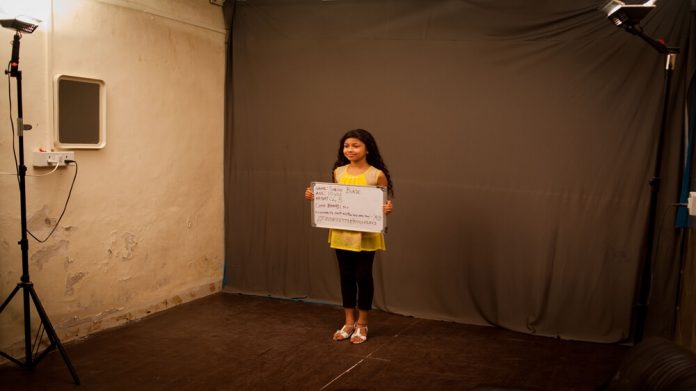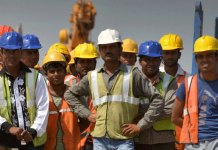This article is written by Pratap Alexander Muthalaly, a student of the Government Law College, Trivandrum. In this article, the various rules and provisions protecting child actors are highlighted. Along with this, possible additions and reforms to the existing frameworks and rules are also discussed.
Table of Contents
Introduction
Many amongst us have aspired at one point or the other to be actors, it is however only a select few who are afforded this privilege. Among those chosen, some are children or ‘child actors’ as they are popularly known. Many of these children experience relative fame at a young age and enjoy many of the benefits that come with it. They meet and learn from famous actors and often have a headstart in their acting careers. While one may assume that a child actor’s life is all glitz and glamour, this is not necessarily the case. Child actors and performers in the entertainment industry often face a host of problems and issues that most children in their age group are rarely exposed to.
Who is a child actor/performer
The term ‘child performer’ is an umbrella term that includes among others, young performers, singers, actors, dancers and athletes. These children are listed as exceptions to the ILO 1973 Convention concerning minimum age for admission to employment, and thus have to receive payment for the work they do. This of course is only relevant if they have permits which regulate the number of hours they are to work along with their working conditions. Across the world, child performers are protected by various laws, which dictate how many hours they may work and how this is to be balanced with their education and other holistic parts of child development. India too has specific laws to protect child performers.
Overview
Peer jealousy, public envy, constant social media trolls, and hate messages are all considered as part and parcel of being an actor in the present day. The problem is when child actors are subjected to the same treatment. Given that adult actors themselves have difficulty coping with this treatment, one can only imagine the difficulties young child actors face.
Furthermore, child performers are often exploited for their charm, innocence and revenue generating ability. Kids who enter the entertainment industry at a young age are often robbed of what one would consider a normal childhood. That is, they are prematurely pushed into the adult world, often without the requisite support and care.
Owing to the rather laid back nature of the entertainment industry, many kids have early access to cigarettes, alcohol and drugs and are often without the adequate parental supervision. As a result, some fall prey to alcohol abuse and drug addiction, while others succumb to mental illness, stress and depression due to the fact that they are ill equipped and ill prepared to handle the negative consequences of their fame and lifestyle. Macaulay Culkin and Lindsay Lohan and Miley Cyrus are notable examples of child actors who have struggled in their adult lives. This is why it is crucial to have laws protecting children in entertainment from exploitation and ensuring that they still manage what to have what can be considered a normal childhood. These children often miss out on interaction with children of their similar peer group and also aren’t able to experience many of the joys of everyday school life that most people take for granted.
There is also the risk of sexual abuse and exploitation that child actors have to be vary of. For example, in India a Mumbai-based businessman was sentenced to three years in prison for sexually abusing a 17-year-old actor on a Delhi-Mumbai flight in 2017. There are many other such cases of abuse that often go unreported both in India and many other parts of the world. This is sadly the full picture when it comes to being a child in the entertainment industry.
UN Laws and Conventions
The United Nations Declarations on the Rights of the Child (1959)
In 1959, the UN General Assembly adopted the Declaration of the Rights of the Child, which addressed many important areas including the child’s rights to protection, education, health care, shelter, and good nutrition. This declaration also provides for the right of child actors and performers as well.
- Principle 2 of the Geneva Declaration states that the child is entitled to special protection, and can avail opportunities and facilities, by law and by other means, that allow him/her to develop physically, mentally, morally, spiritually and socially in a healthy and normal manner and in decent and respectable living conditions that do not hurt his physical or mental health. The primary driving point behind this legislation is to ensure that the child is well taken care of and protected.
- According to principle 7 a child is entitled to receive free and compulsory education at least in the elementary stages. This principle also places special responsibility on the shoulders of the child’s parents and designated caregivers.
- In accordance with principle 9, a child shall not be employed until he/she reaches the appropriate minimum age. Basically under no conditions is he to be allowed to engage in any occupation or employment which would adversely affect his health or education, or for that matter interfere with his physical, mental or moral development.
The special safeguards for children are undoubtedly important and central principles of the convention, all of these principles, however do not apply in the case of children working in the entertainment industry. That is while they are still afforded the listed protections, they are allowed to work nevertheless.
Similar exceptions to these also apply in the case of the ILO’s minimum age convention.
Laws protecting child actors (India)
In June 2017, India ratified two more of the ILO provisions. Prior to that the Centre introduced amendments to the Child Labour (Prohibition and Regulation) Act, 1986 in August 2016 and then in 2017 the government has also introduced the Child Labour (Prohibition and Regulation) Amendment Rules.
Since the amendment of 2016, producers are required to work in accordance with the following directives while employing child artists-
- Restriction on employment of children in any occupation or process:
Under section 3 of the amended Act there are some special provisions for Children. This refers to all persons under the age of 14 years. In accordance with the law they are permitted to work in any occupation, this is of course only if they are providing significantly to the family earnings by being a part of the family venture. It must be noted however that this section exempts those helping their family or family enterprise, other than any hazardous occupations or processes. That too after the school hours or during vacation, from the ambit of the Act.
- Conditions for children working for media entertainment:
Section 3 also has a provision that exempts children working as actors in the audio-visual entertainment industry. These exemptions include television serials, advertisement, films or any other such activity in the realm of entertainment or sport. This also applies to persons working in circuses, if they fulfill the stipulated requirements.
According to the prevailing Laws in force, a producer has to meet certain specific criteria while hiring child actors. These criteria include:
- Obtain certified permission from the District Magistrate by way of an undertaking in Form C of the aforementioned Rules. The said form should be presented before the District Magistrate before commencing any activities in the district;
- A list of all child participants must be furnished along with the expressed consent of their parents or guardian. Also, the name of those responsible must be clearly stated for the effective safety and security of the child;
- All screening of the said production’s films and television programs are to be made with a disclaimer. That is, it should specify if any child has been engaged in the shooting, and if they have it must be noted that all the designated measures & care was taken to ensure that in no way was there any abuse, neglect or exploitation of said child performers during the entire process of the shooting;
- Proper facilities for the education of all child performers must be arranged as well. Also, it must be ensured that there is no discontinuity from the child’s lessons in school;
- No child performer must be allowed to work continuously for a span of more than 27 days;
- Also, at least one responsible person must be designated for a maximum of five children for the production or event. This is to ensure that no harm befalls the child and everything happens in his/her best interests.
It is further stated in the new regulations that at least 21% of income earned by the child should be deposited in his account. Moreover, the account must be in a nationalized bank. This aforementioned amount may be credited to the child on attaining majority. Most importantly however no prospective child performer should be made to engage in any audio-visual, sports, or informal entertainment activity without his free will and expressed consent.
Famous cases
The case of Jackie Coogan is famous for triggering the creation of California’s Child Actor laws, also known as the Coogan Laws. In this case, Jackie Coogan’s parents had spent all his earnings as a famous child actor. In recent times famous stars like Macaulay Caulkin and Modern family’s Ariel Winter have filed for emancipation from their parents, to protect themselves from exploitation from agents and parental guardians alike.
In India, there was a case where a complaint was filed against a local soap opera in the Kerala State Council for Child Welfare (KSCCW). Basically, the rights of child artists were being violated on the set. The complaint was lodged by the parents on the behalf of the children. The children were forced to work long hours (beyond the stipulated 3 hour mark) and were not being given remuneration either.
Further areas of reform
While the 2016 amendments are certainly a step in the right direction, more must be done to help child actors learn to cope with the trappings of fame and also deal with the mental pressure of a career in the entertainment industry. Thus, the above-stated rules should also make it compulsory that child actors are provided adequate counselling and advice from trained professionals to deal with the darker aspects of the industry. Furthermore, adequate steps must be taken to shield child actors from drugs, alcohol or any other dangerous substances.
Another angle that has not been considered is the dangers posed to the child by managers, parents and guardians. It is crucial that there is an adequate legal framework in place to protect child actors from this risk. In order to make this effective, it might be necessary to consider creating emancipation laws which do not currently exist in India.
Also, there is a need to redirect and regulate media attention that is focussed on child actors. It is necessary that there are effective legal provisions to ensure this works. Furthermore, extra care must be taken to prevent sexual abuse against child actors and cultivate a safe environment for them. Also, care must be taken to ensure that children are not being commercially exploited by those close to them and that the income they earn is primarily invested back into their future so as to avoid situations where children are left penniless.
Furthermore, these rules should not be simply limited to child performers or actors, it should be expanded to apply to child athletes in sport. Child athletes often suffer from serious cases of bullying and exploitation at the hands of coaches and agents. Therefore, it is necessary that these provisions be expanded to include them as well. Similarly, there should be adapted regulations for dancers and other child artists as well. The law should not be rigidly enforced for the sake of only child actors.
Conclusion
It is essential in a civilized society that children are protected. This applies to those children in entertainment as well. There is a definite need for special provisions and frameworks to safeguard and prepare them for careers in their respective fields. The lack of adequate legislation has been an instrument of downfall for many young talents. A stable legal framework could prove the difference here in protecting children from those in and around them. This includes even their parents and those who would normally be considered well-wishers. It is also important to ensure that agents and other parties do not exploit children commercially. This is especially a case of worry for children in developing countries, where families are especially dependent on the earnings of children. Furthermore, it is important to build up sympathy and support for child actors within the industry, by acts of mobilization from industry leaders and successful professionals. The most important aspect, in this regard however, is implementation. Irrespective of how well written the law is, it will prove futile unless the government both at the centre at state level, are committed to enforcing these rights.
References
- https://indianexpress.com/article/cities/mumbai/man-gets-3-year-jail-for-sexual-abuse-of-child-actor-on-delhi-mumbai-flight-6218762/
- https://hrmars.com/papers_submitted/5258/Child_Performers_in_the_Entertainment_Industry_An_Analysis_from_the_Employment_Regulations_Perspective.pdf
- https://www.mondaq.com/india/media-entertainment-law/614290/child-actors-and-child-labour-laws
- https://business.taxolawgy.com/child-actors-or-child-labours/#:~:text=No%20child% 20shall%20be%20made,the%20Entertainment%20industry%20of%20India
LawSikho has created a telegram group for exchanging legal knowledge, referrals and various opportunities. You can click on this link and join:
 Serato DJ Crack 2025Serato DJ PRO Crack
Serato DJ Crack 2025Serato DJ PRO Crack










 Allow notifications
Allow notifications


